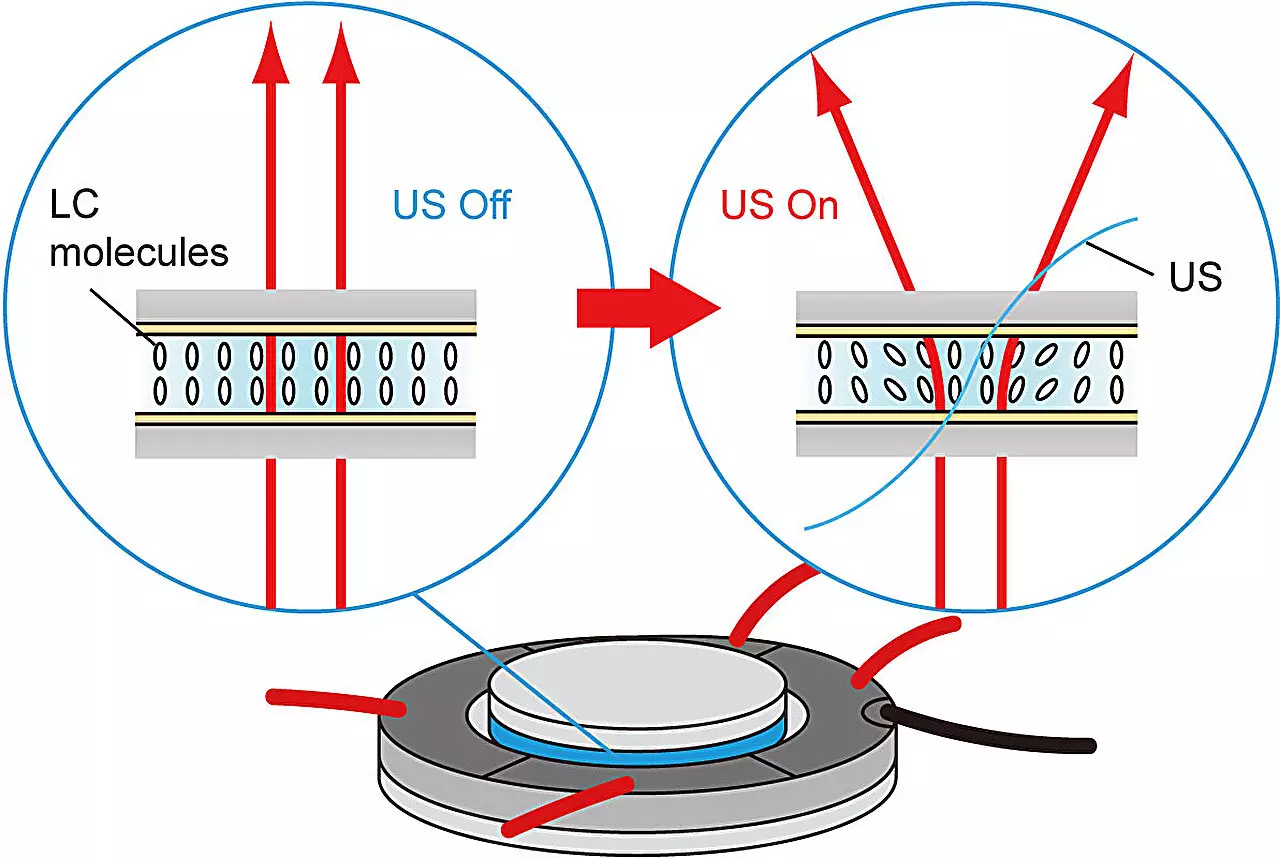Artificial lighting plays a crucial role in our daily lives, affecting our productivity, mood, and overall well-being. In a recent breakthrough study conducted by Professor Daisuke Koyama and his team at Doshisha University, a novel tunable ultrasonic liquid crystal (LC) light diffuser was developed. This innovative device presents a significant advancement in the field of artificial lighting, offering a unique approach to controlling diffusion directivity without the need for mechanical parts.
The ultrasonic LC light diffuser comprises a nematic LC layer situated between two glass disks, along with an ultrasonic piezoelectric transducer. By applying a continuous reverse-phased sinusoidal signal to the transducer, ultrasonic vibration is induced on the glass disks. When the frequency of this vibration aligns with the resonant frequency of the LC light diffuser, non-coaxial resonant flexural or bending vibration modes are produced on the LC layer at varying frequencies. This leads to changes in the molecular orientation of the LC layers, thereby altering the transmitted light distribution.
Control of Diffusion Directivity
One of the key features of the ultrasonic LC light diffuser is its ability to control diffusion directivity by simply changing the electrodes to which the input voltage is applied. This maneuver allows for easy rotation of the molecular orientation and, consequently, the diffusion directivity of the device. The researchers found that the diffusion angle is contingent on the input voltage amplitude, with optimal performance achieved at 16 V. Beyond this threshold, the diffused light may exhibit instability. Furthermore, the transmitted light distribution is influenced by the polarization of the incident light, highlighting the versatility and adaptability of this groundbreaking technology.
Advantages Over Traditional Diffusers
Unlike conventional light diffusers that rely on periodic surface profiles or light-scattering layers, the ultrasonic LC light diffuser offers a thin and simple structure with no mechanical moving parts. This design not only enhances the aesthetic appeal of the device but also eliminates the need for bulky components that may hinder its functionality. By leveraging the principles of ultrasonic vibration and molecular orientation control, this innovative diffuser sets a new standard for efficient and customizable artificial lighting solutions.
The development of the tunable ultrasonic LC light diffuser holds significant promise for the future of artificial lighting systems. With its seamless integration of advanced technology and user-friendly features, this device has the potential to revolutionize the way we perceive and utilize artificial light in various settings. From enhancing the ambience of residential spaces to optimizing workspace productivity, the versatility and efficacy of the ultrasonic LC light diffuser make it a frontrunner in the next generation of lighting innovations.
The research conducted by Professor Daisuke Koyama and his team represents a remarkable advancement in the field of artificial lighting technology. By introducing a novel approach to light diffusion control through ultrasonic liquid crystal technology, the ultrasonic LC light diffuser offers a glimpse into the future of customizable and efficient lighting solutions. As we look towards a brighter and more sustainable future, innovations like this will undoubtedly play a vital role in shaping the way we illuminate our world.


Leave a Reply